New Certification Scheme for Vehicle Comfort Seats launched in China
The China Quality Certification Center (CQC) has announced the launch of a new voluntary certification scheme focused on evaluating the performance of comfort seats in motor vehicles. This initiative includes the publication of a detailed technical specification—CQC/PV 18002-2025—and a set of implementation rules—CQC16-381111-2025—both tailored to define the requirements for certifying automotive comfort seats under the category 013071 S.E.A.T. These documents collectively provide a framework for grading comfort levels in vehicle seating, officially titled the “Performance Level Certification for Comfort Seats in Motor Vehicles.” Automotive Comfort Car Seats usually require CCC certification in order to be approved for import and sale in China.
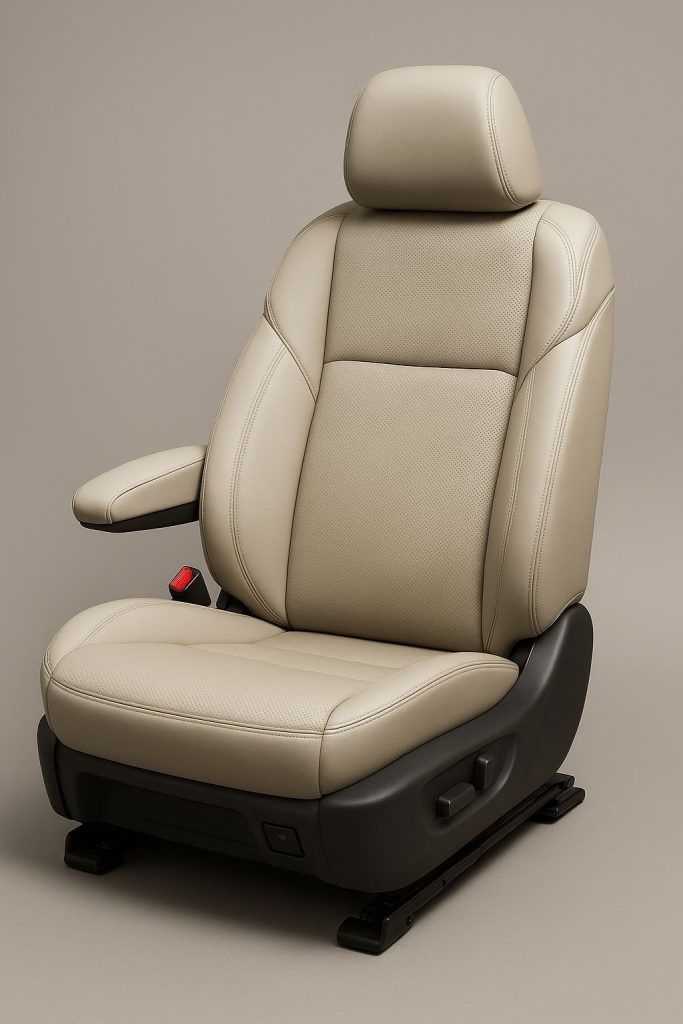
The certification process aims to standardize the comfort rating of car seats based on scientifically backed evaluation criteria. Applications for this voluntary program are now open, allowing manufacturers to submit their products for assessment under the newly established scheme. By adhering to the specifications and certification rules, participating companies can enhance product credibility and align with consumer comfort expectations in the Chinese automotive market.
For more information on how CCC certification, the CCC Self-Declaration and voluntary CCAP or CQC certification may affect your company, or for more information about CCC certification in general, please visit our News Section where you will find current updates twice a week.
Please do not hesitate to contact us for further details and consultation. You can contact us via email, Chat, or call us (UK: +44 2071931135, Europe: +49 69 2713769150, US: +1 773 654-2673).
You can also check our free CCC-Brochure, which can be downloaded as a PDF file. The brochure also contains information on the CCC Self-Declaration and the voluntary CQC- and CCAP-Certification).
New Battery Certification Standard GB38031-2025 replaces previous Regulation in China
The new Chinese standard GB38031-2025 was published on March 28, 2025, replacing the previously applicable version GB38031-2020. Mandatory implementation for new vehicles begins on July 1, 2026, while existing vehicles must provide proof of compliance by July 1, 2027. This results in a 12-month transition period to adapt to the updated requirements. Further details regarding implementation, including whether certain exemptions will apply, are not yet known and are expected to be clarified in upcoming TC11 announcements. EV batteries usually require battery registration in order to be approved for import and sale in China.
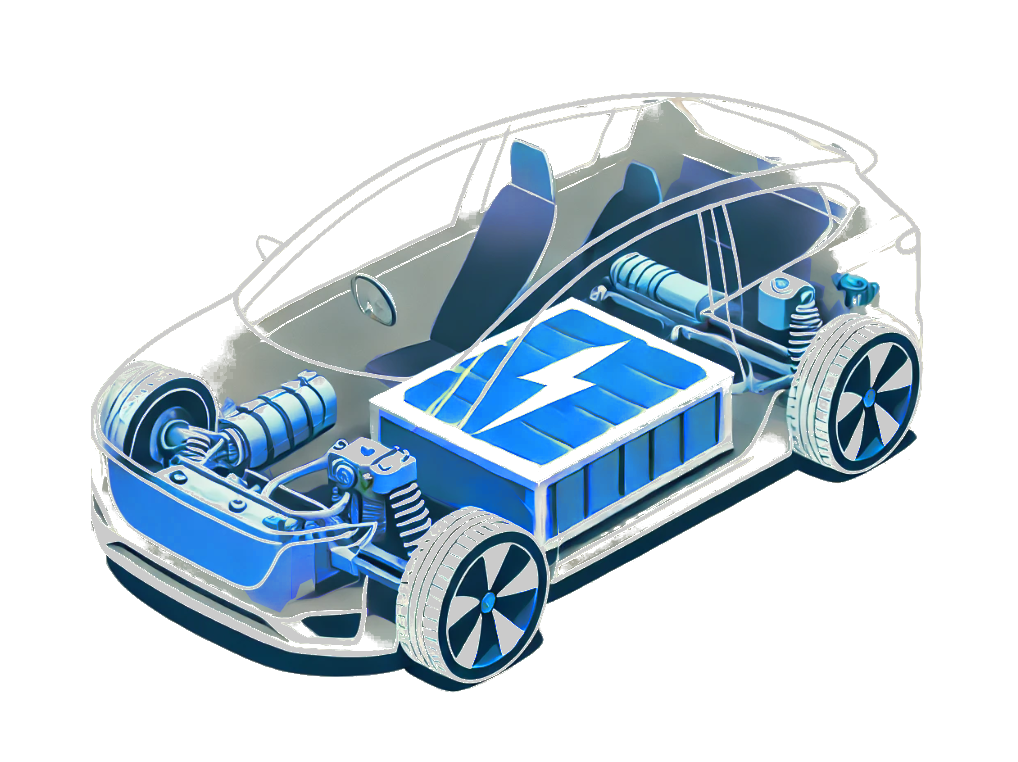
Key updates include revised requirements for thermal testing (“Thermal Propagation”) and the introduction of a new underbody test, the “Bottom Impact Test.” Additionally, the new standard includes a structured overview outlining which specific sub-tests at the pack level are required when component changes occur.
For more information on how battery registration, CCC certification, the CCC Self-Declaration and voluntary CCAP or CQC certification may affect your company, or for more information about CCC certification in general, please visit our News Section where you will find current updates twice a week.
Please do not hesitate to contact us for further details and consultation. You can contact us via email, Chat, or call us (UK: +44 2071931135, Europe: +49 69 2713769150, US: +1 773 654-2673).
You can also check our free CCC-Brochure, which can be downloaded as a PDF file. The brochure also contains information on the CCC Self-Declaration and the voluntary CQC- and CCAP-Certification).
New GB Standards: Relevant Changes for Automotive and Battery Technology
We regularly publish advance information on new standards announced by the Chinese authorities that have recently entered into force or will come into force in the near future. Affected products must usually have CCC certification or other national standard approvals in order to be approved for import and distribution in China.
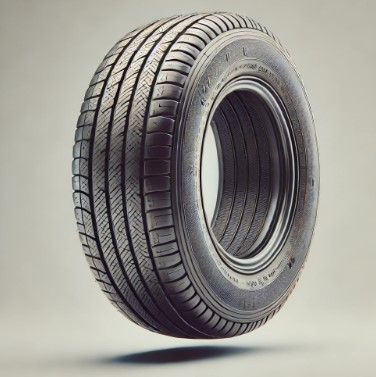
Recently announced or effective standards currently include (1) GB/T 45390-2025, Communication interface requirements for power lithium battery production equipment, (2) GB/T 45478-2025, General requirements for the identification of automobile tire performance grades, (3) GB/T 45452-2025, Hydraulic transmission 25MPa series single rod cylinder installation size. This is only a selection of the newly published standards.
Here is a partial overview of the new Quality Control Orders that will come into force next month:
| New standards/ Neue Standards | Title/ Titel | Implementation date/ Implementierungsdatum |
| GB/T 45390-2025 | Communication interface requirements for power lithium battery production equipment | 01.10.2025 |
| GB/T 45452-2025 | Hydraulic transmission 25MPa series single rod cylinder installation size | 28.03.2025 |
| GB/T 45478-2025 | General requirements for the identification of automobile tire performance grades | 01.10.2025 |
| GB/T 45493-2025 | Requirements for the implementation of automotive product recalls based on remote upgrade technology | 01.01.2026 |
| GB/T 45496-2025 | Automotive Product Recalls Information Defect Assessment Guidelines | 28.03.2025 |
| GB/T 45497-2025 | Automotive Product Recalls Producer's Guide | 28.03.2025 |
For more information on how CCC certification, the CCC Self-Declaration and voluntary CCAP or CQC certification may affect your company, or for more information about CCC certification in general, please visit our News Section where you will find current updates twice a week.
Please do not hesitate to contact us for further details and consultation. You can contact us via email, Chat, or call us (UK: +44 2071931135, Europe: +49 69 2713769150, US: +1 773 654-2673).
You can also check our free CCC-Brochure, which can be downloaded as a PDF file. The brochure also contains information on the CCC Self-Declaration and the voluntary CQC- and CCAP-Certification).
New Standards Endorsed for PEM Electrolyzers in China
On March 28, 2025, the State Administration for Market Regulation and the Standardization Administration of China jointly announced the approval of 216 new recommended national standards. Among these are GB standards GB/T 45539-2025 related to the technical requirements for proton exchange membrane (PEM) electrolyzers and GB/T 45541-2025 for methods for testing their performance. These additions aim to support the development and standardization of hydrogen production technologies in line with national energy goals.
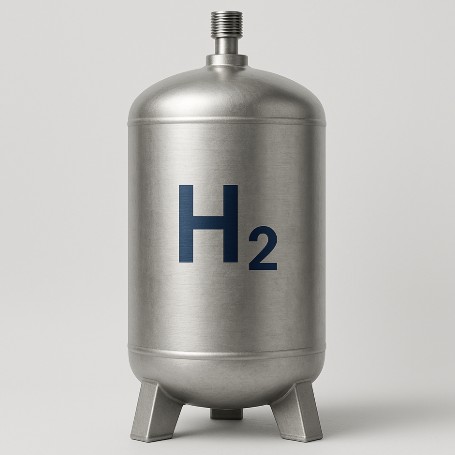
Technical requirements and performance testing methods for PEM electrolyzers usually require national standard approval in order to be approved for import and sale in China.
For more information on how Chinese national standard approvals may affect your company, or for more information about CCC certification in general, please visit our News Section where you will find current updates twice a week.
Please do not hesitate to contact us for further details and consultation. You can contact us via email, Chat, or call us (UK: +44 2071931135, Europe: +49 69 2713769150, US: +1 773 654-2673).
You can also check our free CCC-Brochure, which can be downloaded as a PDF file. The brochure also contains information on the CCC Self-Declaration and the voluntary CQC- and CCAP-Certification).
New GB Standards in China: Current Requirements for Electric Vehicles and Shore Power Systems
We regularly publish preliminary information on new standards announced by Chinese authorities that have recently come into effect or will do so in the near future. Affected products typically require approval according to national standards to be approved for import and sale in China.
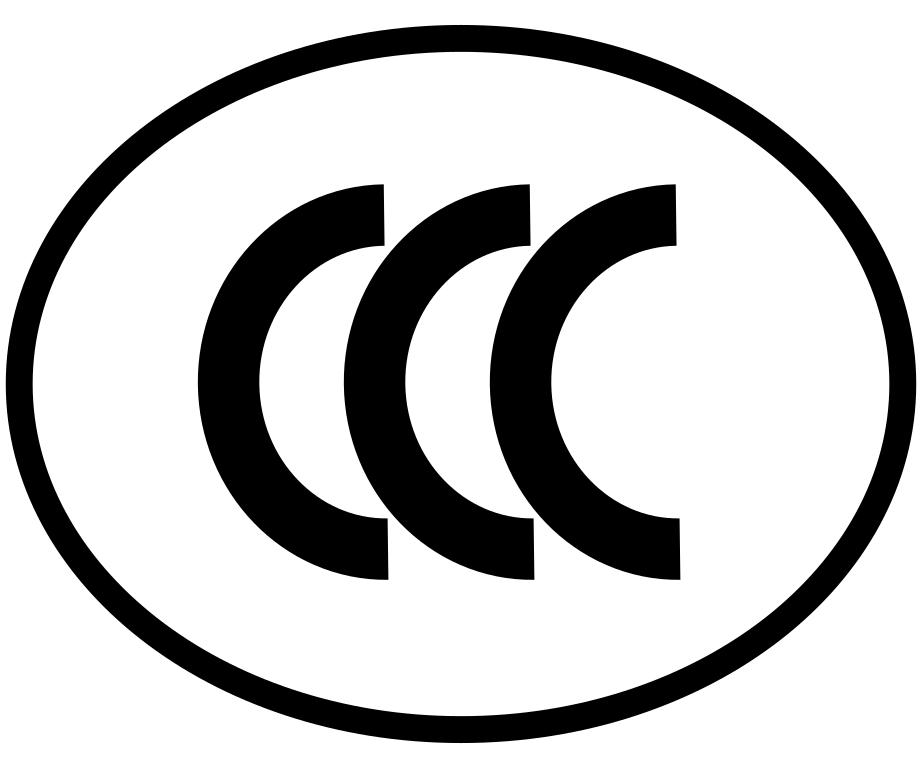
Among the recently announced or newly effective standards are (1) GB/T 11918.6-2025, Industrial Plugs, Sockets and Couplers Part 6: DC Plugs, Receptacles and Connectors for Ship Shore Power Systems, (2) GB/T 45415-2025, Fire defect analysis method for pure electric vehicles, (3) GB/T 18655-2025, Vehicle, Boat, and Internal Combustion Engines Radio Disturbance Characteristics Limits and measurement methods for the protection of on-board receivers.
These represent only a selection of the most recently published standards.
Here you will find a partial overview of the new GB standards:
| New standards/ Neue Standards | Title/ Titel | Replacing standard/ Ersetzter Standard | Implementation date/ Implementierungsdatum |
| GB/T 11918.6-2025 | Industrial Plugs, Sockets and Couplers Part 6: DC Plugs, Receptacles and Connectors for Ship Shore Power Systems | 01.09.2025 | |
| GB/Z 15166.8-2025 | High Voltage AC Fuses Part 8: Application Guidelines | 01.09.2025 | |
| GB/T 18655-2025 | Vehicle, Boat, and Internal Combustion Engines Radio Disturbance Characteristics Limits and measurement methods for the protection of on-board receivers | GB/T 18655-2018 | 28.02.2025 |
| GB/T 20718.2-2025 | Road Vehicles Electrical Connectors Between Tractor and Trailer (13 Cores) Part 2: 12V13 Core Wading Type | 01.09.2025 | |
| GB/T 37133-2025 | High-voltage connection systems for electric vehicles | GB/T 37133-2018 | 28.02.2025 |
| GB/T 45415-2025 | Fire defect analysis method for pure electric vehicles | 28.02.2025 | |
| GB/T 45416-2025 | A Guide to Crash Vehicle Investigation and Safety Defect Analysis | 28.02.2025 | |
| GB/T 45417-2025 | A guide to the analysis of defects in automotive regenerative braking functions | 28.02.2025 | |
| GB/T 15382-2021 | General Technical Requirements for Gas Cylinder Valves (No. 1 Amendment Order) | GB/T 15382-2009,GB/T 10879-2009 | 28.02.2025 |
| GB/T 19510.1-2023 | Light source controls Part 1: General requirements and safety requirements Amendment No. 1 | GB 19510.1-2009 | 28.02.2025 |
| GB/T 19510.213-2023 | Light source control devices - Part 2-13: Special requirements for DC or AC electronic control devices for LED modules (Amendment No. 1) | GB 19510.14-2009 | 28.02.2025 |
| GB/T 31484-2015 | Cycle life requirements and test methods for power batteries for electric vehicles (No. 1 Amendment Order) | 01.04.2025 |
For more information on how CCC certification, the CCC Self-Declaration and voluntary CCAP or CQC certification may affect your company, or for more information about CCC certification in general, please visit our News Section where you will find current updates twice a week.
Please do not hesitate to contact us for further details and consultation. You can contact us via email, Chat, or call us (UK: +44 2071931135, Europe: +49 69 2713769150, US: +1 773 654-2673).
You can also check our free CCC-Brochure, which can be downloaded as a PDF file. The brochure also contains information on the CCC Self-Declaration and the voluntary CQC- and CCAP-Certification).
CQC introduces new Approval Document for Certification Marks
The China Quality Certification Center (CQC) has introduced a new version of the Certification Mark Approval Document, which took effect on March 1, 2025. This update aligns with the Action Plan for Strengthening the Credibility of the Quality Certification Industry (2024–2026) and aims to enhance the value of certified organizations. The new approval document will be available in electronic OFD format and includes key details such as the certified organization’s name, type and style of the certification mark, usage location, certificate scope, approval period, and a QR code for real-time verification. The previous version will no longer be issued after February 28, 2025. Certain products requiring CCC certification may or must be marked with a logo.
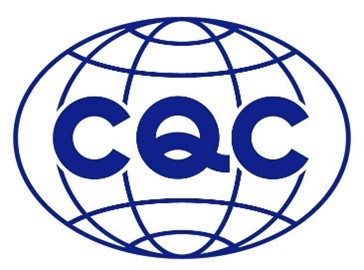
Additionally, CQC is launching a new certification mark registration management system. This system will now oversee the voluntary registration of certification marks for industrial and agricultural products, including organic products. The platform, accessible at www.cqcbz.cn, provides a centralized service for purchasing certification marks (CCC, organic, energy-/water-saving, CQC), registering printed/embossed marks, selling anti-counterfeiting codes, and managing CQC certificates. Organizations must register and receive approval before using the system. CQC has also provided guidelines for the registration and procurement of certification marks.
For more information on how CCC certification, the CCC Self-Declaration and voluntary CCAP or CQC certification may affect your company, or for more information about CCC certification in general, please visit our News Section where you will find current updates twice a week.
Please do not hesitate to contact us for further details and consultation. You can contact us via email, Chat, or call us (UK: +44 2071931135, Europe: +49 69 2713769150, US: +1 773 654-2673).
You can also check our free CCC-Brochure, which can be downloaded as a PDF file. The brochure also contains information on the CCC Self-Declaration and the voluntary CQC- and CCAP-Certification).
New Regulations on Mandatory Certification for EV Charging Equipment to take Effect
According to Announcement No. 50 (2024) issued by the Chinese market regulatory authority, electric vehicle charging equipment will be subject to mandatory product certification (CCC) starting from March 1, 2025. Certification bodies have already begun accepting applications in the preceding weeks. The certification process is intended to ensure product compliance with Chinese regulations. The China Quality Certification Center (CQC) has already officially implemented this requirement and is carrying out CCC certification for charging equipment listed in the mandatory certification catalog.
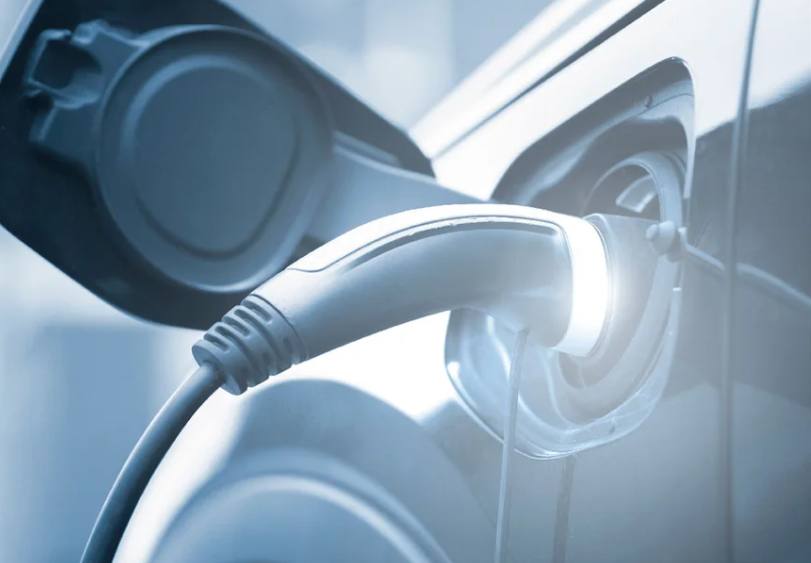
Additionally, in accordance with Announcement No. 25 (2024) of the Chinese Certification and Accreditation Administration (CNCA), the “Implementation Rules for the Compulsory Product Certification of Electric Vehicle Charging Equipment” (CNCA-C25-01: 2024) were issued on December 12, 2024, and likewise came into effect on March 1, 2025. The CQC has also released the CQC-C2501-2025 guideline, which details the certification requirements for AC and DC charging equipment. The requirements for converting existing voluntary certification test reports are outlined in the corresponding annexes.
For more information on how CCC certification, the CCC Self-Declaration and voluntary CCAP or CQC certification may affect your company, or for more information about CCC certification in general, please visit our News Section where you will find current updates twice a week.
Please do not hesitate to contact us for further details and consultation. You can contact us via email, Chat, or call us (UK: +44 2071931135, Europe: +49 69 2713769150, US: +1 773 654-2673).
You can also check our free CCC-Brochure, which can be downloaded as a PDF file. The brochure also contains information on the CCC Self-Declaration and the voluntary CQC- and CCAP-Certification).
Revised CCC Certification Rules for Automotive Lighting in China
The China Certification Centre for Automotive Products (CCAP) has announced updates to the implementation rules for the CCC certification of automotive lighting and light signaling devices. The newly issued standards—GB 4599-2024, GB 5920-2024, and GB 11564-2024—were published on September 29, 2024, and will take effect on July 1, 2025. These new standards replace 18 previous versions, including those covering filament bulb headlights, fog lamps, LED headlights, adaptive front lighting systems, and various signaling lights. The revision aligns with regulations from the Certification and Accreditation Administration of China (CNCA) and incorporates technical decisions from the CNCA Automotive and Component Technical Expert Group. Automotive lighting and light signaling devices require CCC certification to be approved for import and sale in China.

Key changes in the new certification rules (CCAP-GZ-4100:2025) include an expanded scope to cover reflective markings and warning triangles, updates to certification basis standards, revised classification of certification units, and modifications to sample specifications and testing requirements. Additionally, factory inspection and post-certification supervision timelines have been adjusted, while a special provision for certification before factory audits has been introduced. Certification validity is now extended to 10 years. Manufacturers must comply with the new rules starting from the notification date, with a phased implementation for different product categories. Existing certifications will remain valid but must be upgraded by July 1, 2028, to conform to the new standards. Failure to update certificates within three months of the deadline will result in suspension, and continued non-compliance may lead to certification revocation.
For more information on how CCC certification, the CCC Self-Declaration and voluntary CCAP or CQC certification may affect your company, or for more information about CCC certification in general, please visit our News Section where you will find current updates twice a week.
Please do not hesitate to contact us for further details and consultation. You can contact us via email, Chat, or call us (UK: +44 2071931135, Europe: +49 69 2713769150, US: +1 773 654-2673).
You can also check our free CCC-Brochure, which can be downloaded as a PDF file. The brochure also contains information on the CCC Self-Declaration and the voluntary CQC- and CCAP-Certification).
Updated Regulations for Wire Assembly Certification in China
The GB/T 15934-2024 standard introduces revisions to wire assembly regulations in China. Key updates include modifications to the rated voltage requirements for connectors and plug connectors, the addition of rated current specifications for plug connectors, and changes to the wire types used in wire assemblies and interconnecting wire assemblies. These adjustments align with previous standards GB/T 15934-2008 and GB/T 26219-2010.
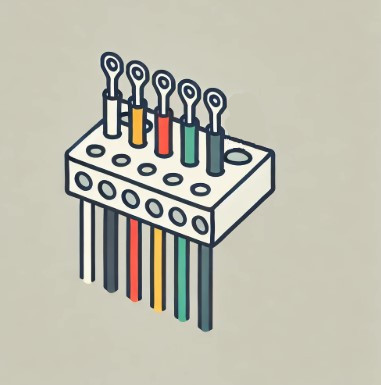
Wire assemblies typically require CCC certification to be approved for import and sale in China.
For more information on how CCC certification, the CCC Self-Declaration and voluntary CCAP or CQC certification may affect your company, or for more information about CCC certification in general, please visit our News Section where you will find current updates twice a week.
Please do not hesitate to contact us for further details and consultation. You can contact us via email, Chat, or call us (UK: +44 2071931135, Europe: +49 69 2713769150, US: +1 773 654-2673).
You can also check our free CCC-Brochure, which can be downloaded as a PDF file. The brochure also contains information on the CCC Self-Declaration and the voluntary CQC- and CCAP-Certification).
China’s CQC launches Certification for Second-Life NEV Batteries
The China Quality Certification Center (CQC) has officially launched the certification process for second-life power batteries used in new energy vehicles (NEVs). Enterprises can now apply for certification under this initiative, which aims to regulate the reuse of vehicle batteries in other applications. For cascaded use, the traceability code of such batteries must first be changed in accordance with MIIT battery registration for China and GB standard GB/T34014.

The certification applies to Fixed Second-life Batteries (Category 332301) and follows the GB 40165-2021 standard for lithium-ion battery safety in stationary electronic equipment. Additionally, it adheres to the YD/T 3768.1-2020 standard, which outlines technical requirements and testing methods for second-use lithium iron phosphate batteries in communication base stations. Certification will be conducted under the CNCA: EBEU-01:2023 rules for second-life NEV batteries.
Manufacturers can submit their certification applications via the CQC website, with further details available through consultation with CQC engineers.
For more information on how CCC certification, the CCC Self-Declaration and voluntary CCAP or CQC certification may affect your company, or for more information about CCC certification in general, please visit our News Section where you will find current updates twice a week.
Please do not hesitate to contact us for further details and consultation. You can contact us via email, Chat, or call us (UK: +44 2071931135, Europe: +49 69 2713769150, US: +1 773 654-2673).
You can also check our free CCC-Brochure, which can be downloaded as a PDF file. The brochure also contains information on the CCC Self-Declaration and the voluntary CQC- and CCAP-Certification).



